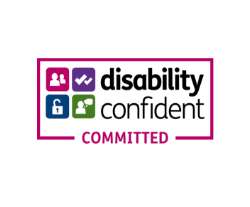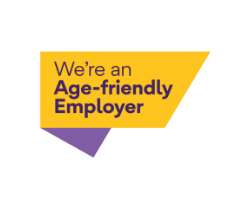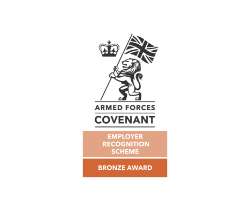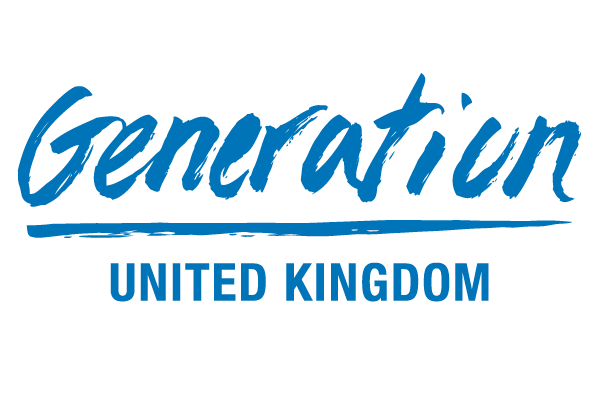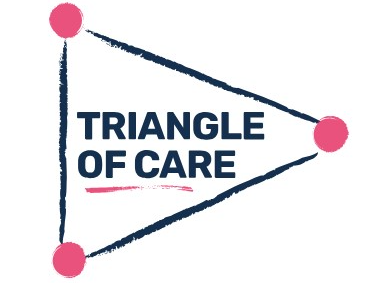August 2017 Jamie moved up to Hospital Manager and moved into social care in September the same year and moved away from the hospital setting.
What she has experienced since then has sharpened her opinion on why being a Learning Disabilities Nurse certainly isn’t the ‘lower end’ of nursing: it’s an important way to have long-term influence over the quality of people’s lives.
Jamie – thanks for your time. What’ the biggest difference between hospital and residential setting, as a Nurse and Manager?
In hospitals you resolve and reduce.
In social care you don’t focus on resolving in the same way. Instead, you help individuals live more meaningful lives.
Without being cheesy, in social care it’s honestly about the small wins. Watching someone fasten their shoe lace after a year of trying. Or witnessing a service user who was so shy and anxious – they covered their face and wouldn’t leave their room, change to being out in the communal spaces learning a dance with me 6 months later.
Our rewards are personal and huge, it’s lovely to see the affect you can have on people.
I know you can’t always see the type of ‘progress’ other areas of nursing may witness; like a reduction in symptoms or a “full recovery”
…… but what types of progress do you enjoy seeing with your service users?
We’ve had a person who never left the residential service go out until midnight and have a pint! We encourage our service users to have belief they can do what some people would say are ‘normal’ things. Here, it totally depends on the individual and the type of condition and support they need – it’s so varied – there aren’t set procedures in the same way.
The level of care we provide is different, more long-term and we really build relationships and get to know people. You end up being able to learn what service users need just from the way they raise an eyebrow – even if they are non-verbal… you start to understand exactly what they are feeling and need.
What can people working in Hope House or LD residential services expect to see in terms of service user progress?
At Hope House, our service users have their own flats – the building is divided into flats and some have their own gardens so they can have their own space, which really helps.
There are 2 pathways in the main:
- The individuals that are going to be with us for quite some time or until they get ill or change in some way that we can’t support.
- People that eventually move into supported living – where they need some help in maintaining a home but we help them move towards more independent lives.
80% of our service users have autism alongside a learning disability or a mental health condition (like bipolar or personality disorder).
We do hope to see individuals go back into the community and while they will always need some level of support, it doesn’t need to be 24 hour care so we are there to support that and reduce the chance of future relapses.
Why do you think L&D nurses aren’t thought of as ‘proper’ nurses – when the work you do is so important in helping really vulnerable people within our society?
People can either be negative or naïve – if they don’t understand it. I ended up doing my LD qualification after doing a placement. I had wanted to be a teacher but after a placement I realized it was what I wanted to do.
LD nursing isn’t presented correctly. Because it’s not as built on medical models, it’s based on the needs of the service user. Our experience is so varied and diverse but it’s certainly not ‘lesser’.
But effectively we are our service users advocates.
We help them and their families to break barriers.
Whether that’s with their own expectations of what they can do in their own lives or within the community. For example – I have to ask for joint appointments with service users GP’s so they get double the time to communicate with them. I also fight to get my service users voices heard – so that healthcare and other social care professionals don’t ever speak on their behalf when they come into contact with them.
We’re constantly working out how to speak to our service users and question how to make things more suitable – through makaton or widgets for example.
Depending on our individuals conditions and needs, we approach things in different ways all the time.
You’ve been a Manager for over 7 years now – is it different to nursing and do you get and give your team flexibility?
I always try and do the odd shift here and there as I think of myself as a Nurse first and manager second. I like the interaction with service users and to know what the nurses are facing.
But I’m always there to support the Team.
I have staff who are paid anywhere between £22-25 P/H: one full time and the rest are on part-time hours , with one who just wants to work nights. So we are flexible but where it’s tricky is reducing hours: we still need shifts to be 12 hours.
What has made you a good manager?
I’m always looking to progress – I’ve always wanted to move up the management ladder. Also I’m nosey so I love knowing everything that’s going on and want to make changes. I think I’ll always be within LD, as it’s what I trained in!
Do you think more people coming into nursing should train in LD – there’s been a huge drop off in the last 10 years?
I always ask why people want to do the line of nursing – it’s important to understand what people’s passions are and that we understand career goals and how to help people develop.
I think the approach between LD Nursing and Mental Health nursing say, can be a little different. There may be more risk adversity within the MH, especially within more secure settings as one example.
Yet we’re seeing more universities now offering joint LD and MH cohorts as the two can work well within each other’s setting – which adds to the diversity of the role as a LD nurse with MH experiences.
What excites you about the future of L&D Nursing?
I think there’s been some issues historically, where people could be discharged from hospitals too quickly: the pressures on timeframes could see people at risk of relapse. But since 2015 there’s been more robust frameworks put in place.
The beauty of independent care is where the NHS has clear guidelines and pressure to discharge, we don’t face hose pressures.
I think this area continues to improve as the topic of accessibility continues to be discussed in the wider society – which is exciting!
At Hope House we are encouraging all our staff to use Makaton and have a big push on people using it daily so they really learn it- rather than forget after one training session!














